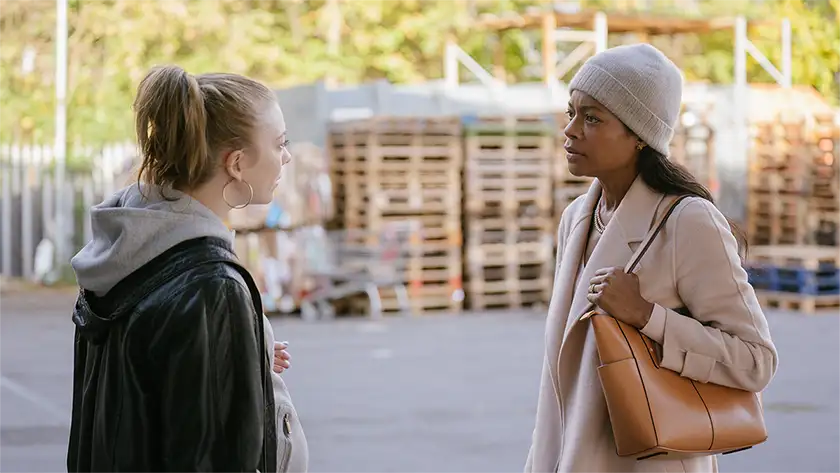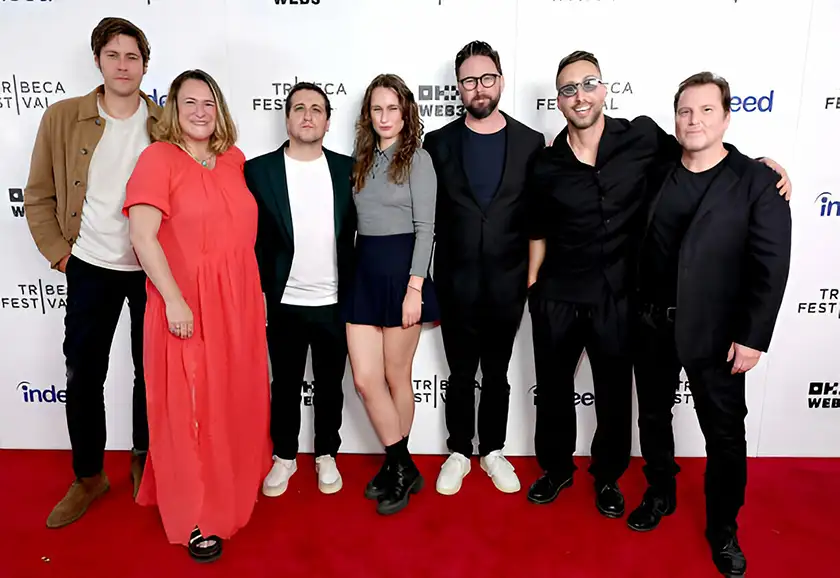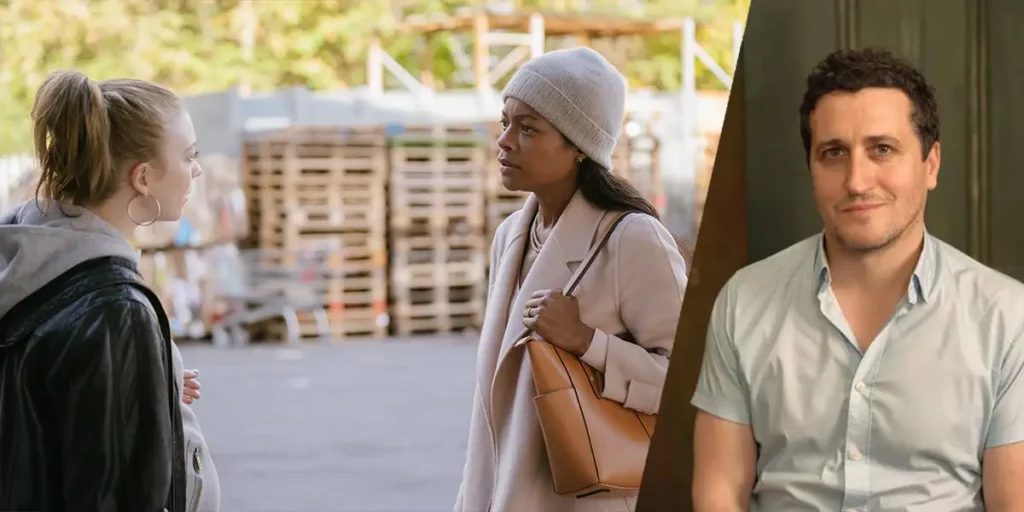Along with the world premiere of The Wasp at the Tribeca Film Festival, we interview director Guillem Morales about his latest film.
Director Guillem Morales’s film The Wasp is a Hitchcockian two-hander that sees a woman (Naomie Harris) plotting to kill her husband with the help of a distant childhood friend (Natalie Dormer). The film plays with themes of class, and long-simmering resentment, while giving way for Harris and Dormer to give layered, complicated performances. In our interview, we talk with Morales about building tension, the casting of Harris and Dormer, and adaptations.
On what got Guillem Morales interested in The Wasp
What got you interested in The Wasp?
Guillem Morales: I’ve known [producer] Sean Sorensen for a while, and he thought I’d be interested in it. He sent me the script and said ‘you’re going to love it’. It was a captivating read, and I was completely absorbed by what [screenwriter] Morgan Lloyd Malcom had to say about violence and trauma. It was very captivating, and in-depth, with the twists and the characters.
So you didn’t have a pre-existing relationship with Malcom?
G.M.: Not at all. Once I was interested, we had a meeting, and we started talking about The Wasp, and we got on really well. And that was it! We agreed with some of the content of the story, and the conclusions, so I think it’s like we shared the same vision of the world. We got to talking about these characters, and it really felt like we were on the same page all the time. Which is perfect because you don’t want a writer and director falling apart.
Guillem Morales on casting the lead roles
You’ve worked with a ton of great actors and actresses, like Anya Taylor-Joy, Stephen Graham, and Eva Longoria. What was it about Naomie Harris and Natalie Dormer that made them the right fits for these parts?
Guillem Morales: Sean had worked with Naomie, and I think Naomie was interested in playing Heather, so I had this conversation with her. We got on really well, and she was the first actress to be involved in The Wasp. I’ve always liked Natalie; it felt like she would be so right for the part. When I met with her, it turned out that one of her visual references for a long time had been my second film. So there was an unexpected connection as well.
In real life, they’re very much not like their characters, so it was very challenging for them. Iit was an amazing opportunity to see them playing something different from what they’ve played before.

Did you do anything in particular to help them feel more natural, or to help them get into character?
G.M.: No, they know what they’re doing. But what I like to do is work with them separately, and talk with them about their characters. That’s part of what you have to do as a director. I think about what the actor’s needs are, because every actor is very different. I have to figure out what I can do to give them what they need. We did a read-through, stopping to ask questions or ask ‘what about this?’, and point out the shifts and motivations.
With this particular script, you really have to pay attention to every single shift because the timeline is there, so you essentially stay with the characters, minute by minute. Everything has to be very clear, which was a privilege, because we had the opportunity to shoot chronologically. Which is very rare in this profession, so we could adjust and make changes if necessary.
On how The Wasp differentiates itself from a stage play
You’re working with a smaller cast and a limited number of locations. Whenever a film like this comes out similar to this, it gets compared to a theatre play. Did that ever come into your mind?
Guillem Morales: Actually, it is based on a stage play. But it’s funny because in the United Kingdom, for the past 10 years, I’ve directed 15 episodes of a TV series called Inside No. 9. It’s a cult TV series in the UK, and it’s absolutely brilliant, with brilliant scripts and brilliant actors. Essentially, it’s about going into a place behind a number 9. It could be a mansion, or a hotel room, or a garage – anything with a 9 – and you never leave that space, and you tell a story for 30 minutes with very few characters, and without leaving that place. So I wasn’t afraid of having very limited spaces and two actors because I’ve been doing this for the last 10 years. And I know that you can achieve something very cinematic by paying attention to the details and by making creative, simple choices. By doing this, it becomes more intense, which I really like.
Had you been able to see the play before filming?
G.M.: No, that was the first thing I said to Morgan. I didn’t want to read it, and I didn’t want to see it. All my decisions are going to be based on the script I have.
Sometimes it helps to have that separation, so you don’t have something in the back of your mind to compare it to.
G.M.: I think it’s healthy to separate that, or when you’re directing an adaptation of a book. Maybe you read the book, and loved it, but once you’re directing a script, you have to push aside the book because it’s a completely different format and it would be distracting.
Have you seen the play, now that you’ve finished the film?
G.M.: [Laughs] No, but I would love to see it. If I had the chance, that would be great.

Guillem Morales on sustaining tension
You mentioned the intensity that you can get in a film which you can’t easily get in a stage play. How did you make sure that sense of dread would be sustained from the beginning of The Wasp to the end?
Guillem Morales: Well, making some decisions can be quite subtle, but apart from the performances, it’s more about camera work. For me, the camera is my tool as a director to film the scenes in a way that makes you feel a certain way. Whether it’s the lens you’re using, the blocking, the lighting, or the camera movement, et cetera. The most important thing to me is the actor. The actor informs how you move the camera, and the blocking, so the camera always has to be adjusting itself to the performance. All of that, plus the editing, and the soundtrack, helps to achieve that tension. I’m almost trying to film something that’s invisible.
This interview was edited for length and clarity.
The Wasp premiered at the Tribeca Film Festival on June 8-12, 2024. Read our Tribeca Film Festival reviews!

 loudandclearreviews.com
loudandclearreviews.comHeader photo credits: Justin Bettman/Contour by Getty Images

